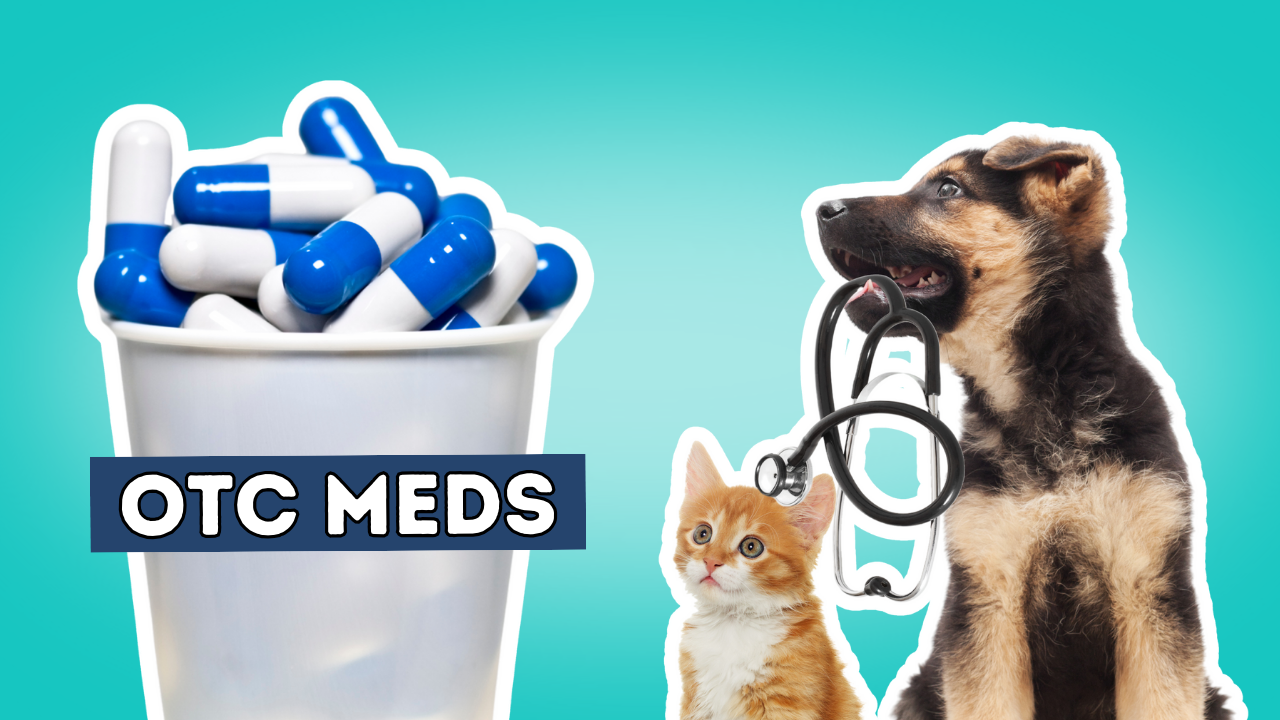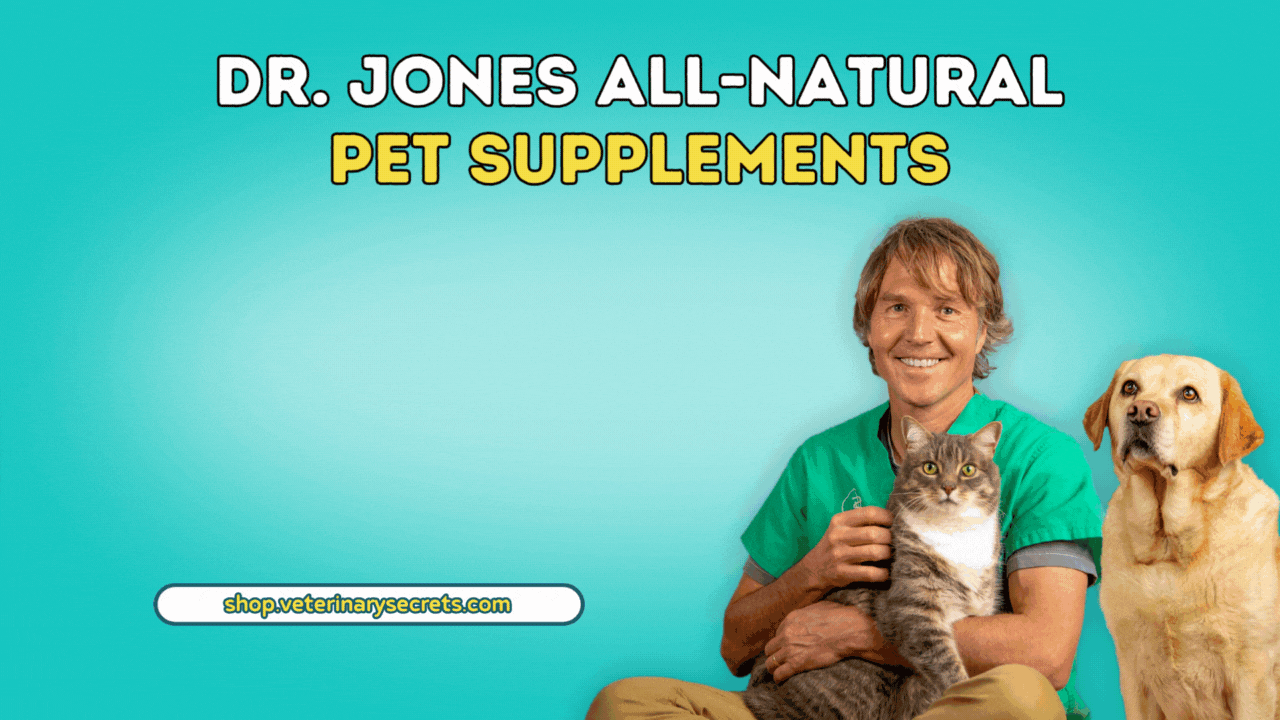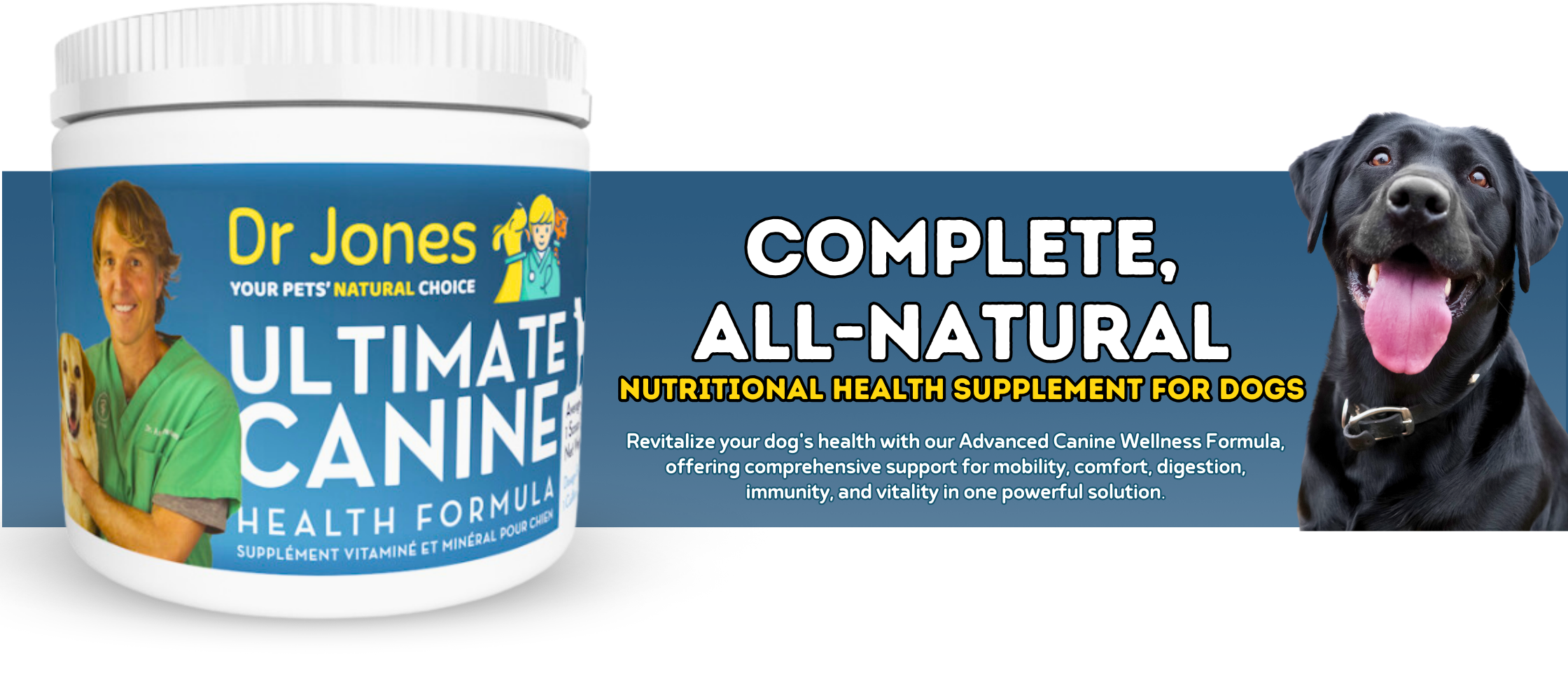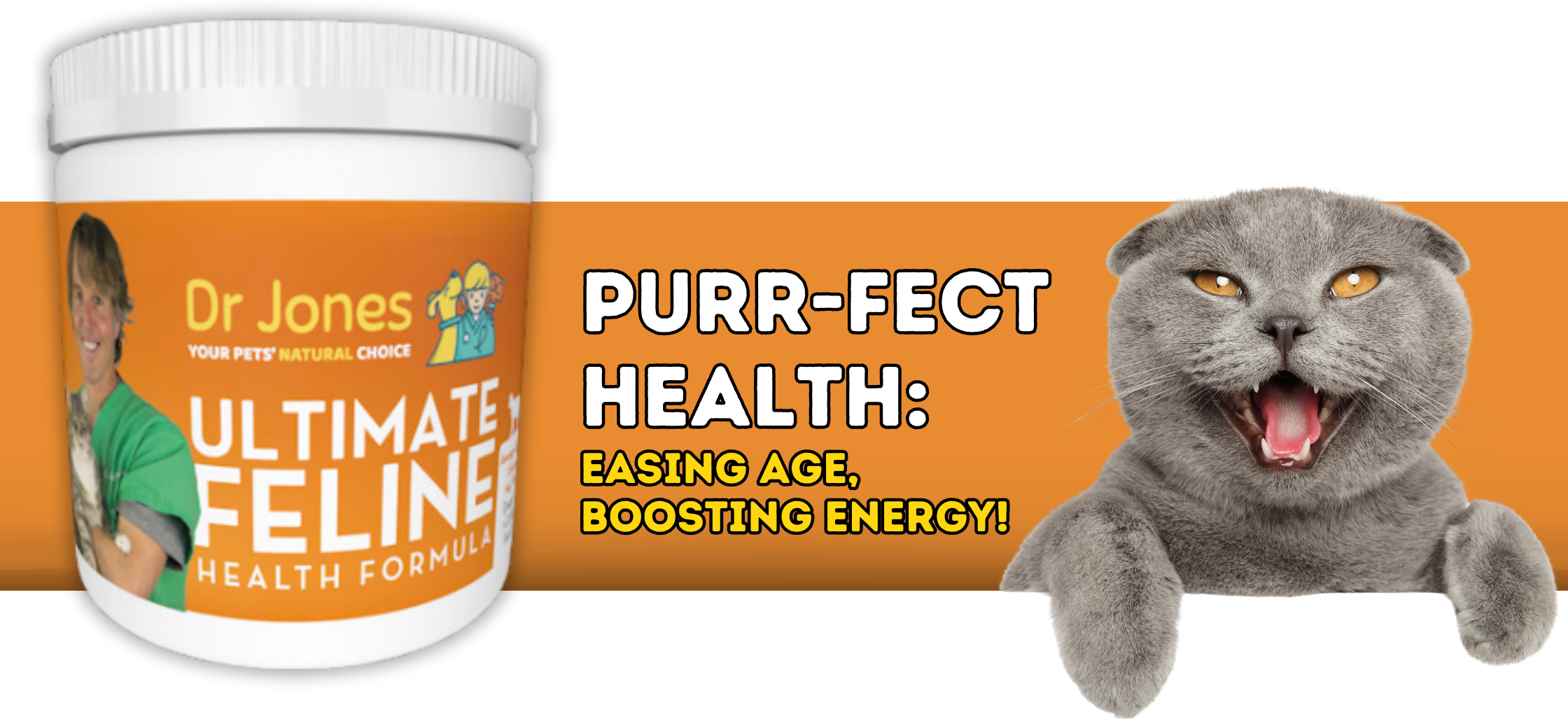10 OTC Human Meds Safe for Dogs and Cats

Don’t give anythingto your pets until you ask your vet?
Really?
That is what many ‘pet professionals’ and most veterinary websites tell you to do… .
In veterinary practice I often suggested clients use an array of human medications for their pets, so in fact what you read online is not always true 🙂
A former client is going travelling with his cats, and asked if there are ANY safe OTC meds he could use. When I travelled with my cats I always used Gravol, finding it to be safe and pretty effective keeping them slightly sedated.
When Pippi was itchy with a Hot Spot, I have her a dose of the new antihistamine Ceterizine, which worked well while the topical meds kicked in.
So yes the OTC meds can be very helpful (and gasp safe!)
Another thing I suggest that you regularly give your dog or cat is a Complete Supplement to PREVENT many of these common diseases in the 1st place.
Here are 2 great supplements to start with:


As a practicing veterinarian, I often encounter situations where a timely visit to the clinic isn’t feasible for pet owners. In these instances, knowing which over-the-counter (OTC) human medications can safely be used for pets can be incredibly valuable. Below, I’ve detailed ten medications that I’ve personally used and found effective for both dogs and cats.
1. Gravol (Dimenhydrinate)
Gravol is particularly useful for treating vomiting in dogs and cats. Many of my canine patients experience car sickness, and I’ve found Gravol to be beneficial. The typical dosage is 12.5mg per 10lbs of body weight, administered twice daily, which equates to one-quarter of a 50mg tablet.
2. Clear Eyes (Naphazoline)
This topical eye medication is safe and often effective for pets suffering from conjunctivitis, characterized by red eyes. The application should be two drops, four times per day, over a span of 5-7 days.
3. Pepcid (Famotidine)
For pets with nausea or acid reflux, Pepcid has been a go-to antacid, especially for cats with kidney disease. The recommended dose is 2.5mg per 10lbs twice a day, which means one-quarter of a 10mg tablet.

4. Canesten/Monistat
These antifungal medications, originally designed for humans, are effective in treating yeast infections in pets, particularly for dogs with ear infections and cats with ringworm. Apply a small amount, about a quarter-inch of the cream, inside the ear twice daily for 7-10 days. For ringworm, apply topically twice a day for 21 days.
5. Cortisone Cream
This is helpful for treating inflamed or irritated skin in pets. A 1% corticosteroid cream can be applied to the affected area twice daily for up to 14 days. It’s particularly useful for conditions like hot spots in dogs.
6. Reactine (Cetirizine)
Reactine is a newer generation antihistamine that is more effective and lasts longer than older versions like Benadryl. It’s safe for both dogs and cats and can be used to treat allergies and acute itching. The dosage is 5mg per 10lbs, administered once daily.
7. Chlorhexidine Antiseptic Flush
Used commonly in surgical settings, chlorhexidine flush is excellent for cleaning out bacteria from skin wounds, which can prevent them from escalating into abscesses. I recommend flushing the affected area 2-4 times per day for 3-5 days.
8. Aspirin
Aspirin should only be used for dogs, specifically when they’re experiencing acute pain and are not on other pain medications or steroids. The dose is 325mg per 40lbs of body weight, given twice daily. It is crucial never to give aspirin to cats.
9. Tea and Aspirin Solution
For topical application, particularly for hot spots or surface skin infections in dogs, dissolve one regular strength aspirin in a cup of strong black tea and apply four times a day. For cats, it is safer to stick to topical cortisone or chlorhexidine.
10. Miralax
Miralax is effective for treating constipation in both dogs and cats. It’s gentler and more effective than many prescription laxatives. A typical dose is 1/4 teaspoon per 10lbs, administered once or twice daily.

Being able to provide basic care at home can be a huge relief in times when veterinary visits are challenging. However, it’s always best to consult with a veterinarian before administering any medications. Prevention is always preferable, and incorporating a complete supplement, like Dr. Jones’ ULTIMATE Canine and Feline Health Formulas, can help maintain your pet’s health effectively.

Where Can I order some of your recommended products ?
Hi Lani, Dr. Jones’ supplements are here: https://shop.veterinarysecrets.com/supplements.html
I’ve been searching for a tried and true VET-who doesn’t gate keep pertinent medical advice we can treat our own pets at home without fear of hurting them and saving money all the while! Thank you Dr Jones?
I have 2 15lb dogs. That have become aggressive when bathing and trimming them. What can I give them to help me with this new malfunction?
You may want to consider CBD, it can help reduce anxiety: https://thecbdsupplement.com
Miralax still seems of concern to me. I’m sure it’s “generally Considered safe” but is it ideal since it’s made from Polyethylene glycol, a polyether compound derived from petroleum. Anything petroleum based seems like it may have longer term consequences. Additionally, while it’s generally safe for cats I’ve read several sources stating it should not be used in cats with certain medical conditions, such as kidney disease or dehydration. I wonder if some other options provide similar benefit w/out the synthetics involved such at Sunfiber which is derived from Guar Gum. Guar Gum is found in some cat foods already. Would love to hear more.
I have a question, I sure hope you can help me with. This time of year, my hands get really dry, but I don’t use hand cream or lotion on them, because I am always handling and petting my dog and 3 cats. I don’t want to use a cream that could be toxic to them if they lick my hands…or if they get it on their fur and then groom themselves and ingest the hand cream or lotion. Is there a hand cream you can recommend that is absolutely SAFE for me to use around my furry family? Any help you can give me would be most appreciated. I searched the internet, but nothing about this comes up….which leads me to believe that people don’t think about what they transfer to their pets’ fur. Thanks again for your help.
Hi Val, you could try our skin balm – it’s made for pets (to be safe for pets), but contains ingredients that can help us humans as well.
https://shop.veterinarysecrets.com/pet-care-supplies/skin-relief-balm.html
It contains Shea butter, coconut oil, beeswax, and more, all safe for pets 🙂
Thanks so much for this suggestion! I hadn’t thought of using a pet product on ME…instead of trying to find a human product safe for my animals. I will check it out. Thanks again! This may be the perfect solution for me and my fur babies!
This would also be safe for cats AND dogs – correct? I have both and don’t want to harm any of my fur family.
Yes, safe for both cats and dogs.